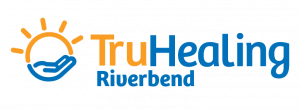Cognitive Behavioral Therapy
Cognitive behavioral therapy (CBT) is a type of therapy commonly used in addiction treatment. CBT helps people identify and reframe negative thought patterns that may lead to unhealthy behaviors.
As individuals move through treatment, cognitive behavioral therapy will help them learn to deal with stress and other triggers in a positive way, rather than turning back to alcohol or drugs. This type of therapy also focuses on creating goals—and coming up with strategies for reaching those goals.
What Does Cognitive Behavioral Therapy Entail?
Cognitive behavioral therapy helps prevent relapse in people with addiction, but can also be used to treat other mental health conditions like anxiety, depression, PTSD, and phobias.
In CBT, clients work with their clinician to understand their thoughts, feelings, and behaviors. CBT helps individuals recognize negative thoughts that are based on internalized feelings or false beliefs. Once identified, these thoughts and feelings can be challenged, helping prevent relapse. CBT helps individuals learn to process trauma, grief, loss, fear, or other painful emotions in a healthy way and take positive action.
Benefits of Counseling and Behavioral Analysis
Cognitive behavioral therapy has many benefits. Individuals who engage in CBT can expect to:
- Overcome negative thinking
- Gain self-awareness
- Recognize and address the roots of their addiction
- Learn healthy ways to cope with stressors or triggers
Reach Out to TruHealing Riverbend for a Cognitive Behavioral Therapy Program in Jeffersonville, Indiana
At TruHealing Riverbend, we want to help you not only get sober, but thrive in recovery. Our cognitive behavioral therapy program helps you work on reframing old, negative beliefs so that you can stay sober and live a positive life.
At TruHealing Riverbend, we use evidence-based treatments like cognitive behavioral therapy to maximize your long-term recovery outcomes. Learn more by calling us today at (855) 652-0546 or submitting our online form.







